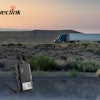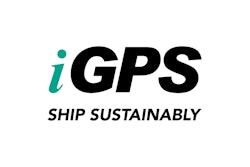Orlando, FL: Intelligent Global Pooling Systems (iGPS Company LLC), operator of the world’s first pallet rental service providing all-plastic pallets with embedded radio frequency identification (RFID) tags, applauds the U.S. Senate for taking steps to protect the safety and security of the nation’s food supply and ensuring that the safest means available are used to transport such goods through interstate commerce. The Senate voted 74-25 Nov. 17 to end debate on the motion to proceed on the Food Safety Modernization Act, S.510.
During the past three years, a wave of food-borne illnesses involving products as varied as spinach, cookie dough and medicines have shaken consumer confidence and made improving food safety measures a priority issue. Food illnesses sicken one in four Americans and kill 5,000 each year, according to the Centers for Disease Control and Prevention (CDC). Three pathogens, Salmonella, E. coli and Listeriosis are responsible for an estimated 112,500 illnesses and over 900 deaths.
“There are many opportunities for food to become contaminated as it is produced, prepared and transported. While much of prevention in the past has focused on contamination risk during the food production and preparation stages, until recently there has been little focus on the risk during transportation,” said Bob Moore, chairman and CEO of iGPS. “The Senate’s food safety bill goes a long way in ensuring that the nation will utilize the best technologies that are available to better track and trace the distribution of food products. I commend Chairman Tom Harkin, Senator Mike Enzi, and Majority Leader Harry Reid for their leadership on this bill and particularly Senator Sherrod Brown for his positive floor statement.”
In a floor statement on the bill, Senator Sherrod Brown addressed the importance of safe and clean pallets as a critical component of a safer food transport system. “It would ensure further study by the FDA on enhanced safe and sanitary methods for the transportation of foods, and we must ensure this includes an examination of the pallets on which our food is shipped. At home you don’t use the same cutting board for chicken that you use for vegetables, or at least you should not, because of potential food safety problems. It is the same thing with these wooden pallets because they can collect—especially wooden pallets—way more bacteria than you can imagine,” said Brown.
The Senator also addressed the bill’s requirements for tracking and tracing. “With the addition of these stronger traceability provisions, the FDA will be tasked with establishing a tracing system for both unprocessed and processed food, such as peanut butter. The 2008--2009 peanut butter Salmonella outbreak which sickened more than 700 people and resulted in nine deaths demonstrates exactly why the FDA needs expanded authority to trace foods,” said Brown. “The FDA was able to identify the source of the outbreak in a short period of time, but it was incredibly difficult and time consuming for the FDA to determine where all the contaminated peanut butter ended up. The source company sold to 85 other companies. They sold to another 1,500 companies, and many of those companies sold to other companies. There were no trace-back provisions to be able to help and warn others of potential contamination. Last year, the Inspector General released a report entitled ‘Traceability in the Food Supply Chain.’ This report identified significant and unacceptable difficulties in tracing food through the supply chain. The report attempted to trace 40 products through each stage of the food supply chain. They were able only to trace 5 of the 40. That is why we know how important this legislation is.”
iGPS has made a major and long-term commitment to safer and cleaner pallets, and has invested in technology that allows the tracking and tracing of shipments. Four embedded RFID tags in each pallet enable shippers and receivers to track shipments throughout the supply chain and locate products in the event of a recall. iGPS is setting a new standard in pallet hygiene, as its pallets are easily cleaned, do not absorb fluids that can cross-contaminate food and never require treatment with toxic pesticides or fungicides. In fact, iGPS’ pallet is the world’s only rental pallet to receive Food Equipment Certification from NSF International, the foremost testing and certification authority with respect to food-related equipment.


















